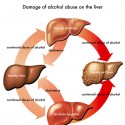Medicines derived from cannabis: A review of adverse events
Researchers at the McGill University Health Centre (MUHC), McGill University and the University of British Columbia (UBC) determined that medical use of cannabinoids do not cause an increase in serious adverse events, but are associated with an increase in some non-serious adverse events.
Several drugs containing compounds derived from the cannabis plant, or cannibinoids, are available for medical purposes in Canada. As the use of cannabinoid medications increases, so do concerns about their potential to cause “adverse events,” or negative side effects. Dr. Mark Ware, Dr. Stan Shapiro and PhD candidate Tongtong Wang of the Research Institute of the McGill University Health Centre and McGill University, and Dr. Jean-Paul Collet of the University of British Columbia examined the nature of these potential adverse events in a study which will be published June 16 in the Canadian Medical Association Journal (CMAJ).
The study was based on the adverse events reported in 31 separate clinical studies of cannabinoid medications conducted between 1966 and 2007. Adverse events were categorized as either serious or non-serious; with serious adverse events defined as those leading to death, hospitalization or disability.
“Overall, we found an 86% increase in the rate of non-serious adverse events among the patients treated with cannabinoids compared to the patients in the control groups,” said Ware, a neurosciences researcher at the Research Institute of the MUHC and assistant professor in anesthesia at McGill’s Faculty of Medicine The majority of events were mild to moderate in severity.
The majority of non-serious adverse events observed affected the nervous system, mainly dizziness and drowsiness. “Cannabinoids are used as medicines because they are neurologically active, so we expected to see some side effects such as these,” said Wang, a PhD candidate in epidemiology and biostatistics at McGill University.
Cannabinoids have been shown to treat chronic pain resulting from diseases such as cancer, multiple sclerosis, arthritis and fibromyalgia, and also to stimulate appetite and relieve nausea. Physicians must weigh the possible benefits of treatment against the possible side effects in an overall attempt to improve the patient’s quality of life.
“We have summarized the adverse events from these studies to help educate physicians and patients about the possible risks of medical cannabinoids,” said Collet, formerly at McGill’s Department of Epidemiology, and now professor at University of British Columbia, senior researcher at the Child & Family Research Institute and Director of the Centre for Applied Health Research and Evaluation at British Columbia Children’s Hospital. “We cannot extend these results to smoked cannabis or recreational use. That will require further research.”
This study was funded by a grant from Canadian Institutes of Health Research, and by a contribution from the Fond de recherche en santé du Québec.
_____________
source: McGill University Health Center

